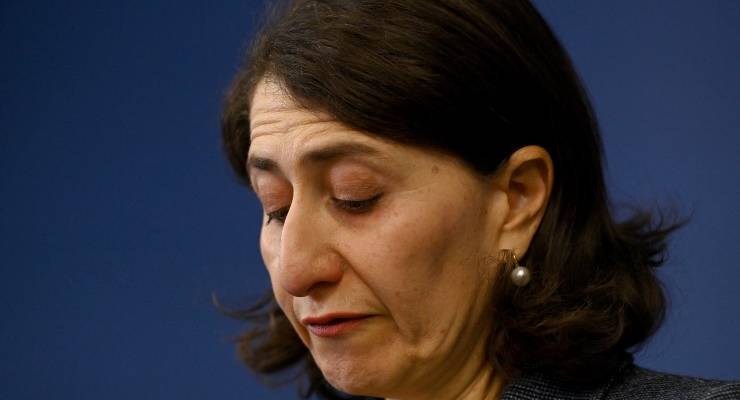
Former NSW premier Gladys Berejiklian faces further delays awaiting the verdict of the NSW Independent Commission Against Corruption (ICAC), with the term of the commissioner overseeing “Operation Keppel” extended to October, Nine newspapers reported today. Meanwhile former minister John Sidoti is rapidly approaching the third anniversary of his standing aside pending an ICAC inquiry.
While ICAC can blame the pandemic for delays to the resolution of the Sidoti investigation, it’s absurd that a former minister has to wait several years for an end — one way or the other — to an inquiry into their conduct. It also suggests NSW ICAC indeed has serious resourcing issues that prevent it from bringing complex investigations to an expeditious end.
But politicians aren’t the only ones who face long delays in the resolution of investigations into them. In the NSW District Court in 2021, defendants waited an average of 500 days from arrest to finalisation of their cases. It used to be up to 540 days, until the NSW government appointed new judges in 2019, which lowered delays slightly — though in some cases the new judges were just appointments of acting judges.
But the time taken between arrest and finalisation for defendants found not guilty in the NSW District Court on all charges was over 640 days — no better than five years ago. It’s 580 days for defendants in prison who were found not guilty. Much worse than five years ago.
In the Supreme Court, if you’re not on bail, you waited over 800 days for a not guilty verdict — though it was over 1400 a couple of years ago. Those are a relatively small number of cases, though. In the NSW Local Courts, time between arrest and finalisation for people not on bail rose to 190 days during the pandemic, and nearly 170 for people not on bail. Under-18s are waiting around 160 days for their matters to be resolved in the Children’s Court.
For ordinary citizens hauled before the criminal courts, they can expect to spend the best part of two years waiting for their cases to be resolved. Many are waiting in prison; those out on bail rightly wait longer. The waiting times faced by politicians and ex-politicians aren’t much different.
Hopefully a federal ICAC will be effectively resourced to conduct investigations expeditiously. Drawn-out inquiries undermine the credibility of the investigator, which is perhaps one reason why politicians are tempted to under-resource them.








Judicial process as punishment? NSW and other parts of Australia are sliding into the US radical right libertarian obsession of cutting budgets, taxes and services; justice (esp. those found not guilty) has become collateral damage.
Meanwhile corporate entities or industry can avoid the same or simply cop relatively modest court financial based punishments for breaking the law e.g. environmental regulation.
The universal issue this illuminates is the chronic underfunding of crucial government functions; eg justice, integrity, social security, heath, education, housing etc etc etc. Is it not time for government to work out what the base level of finding is to deliver an acceptable level of service and then work out an efficient and fair way to collect the revenue need to find that. What we are seeing is the consequence of 30 years of neoliberal nonsense that somehow we can minimise taxes to zero whilst still being served by competent government and public services. After a pandemic that has exposed all sorts of defects in our systems, a climate emergency, war in Europe there seems to be no better one to start again on the financial design of liberal society.
“Justice delayed is Justice denied” – how long is too long?
What about when, not if, bail/remand or reserved decisions exceed half the maximum penalty?